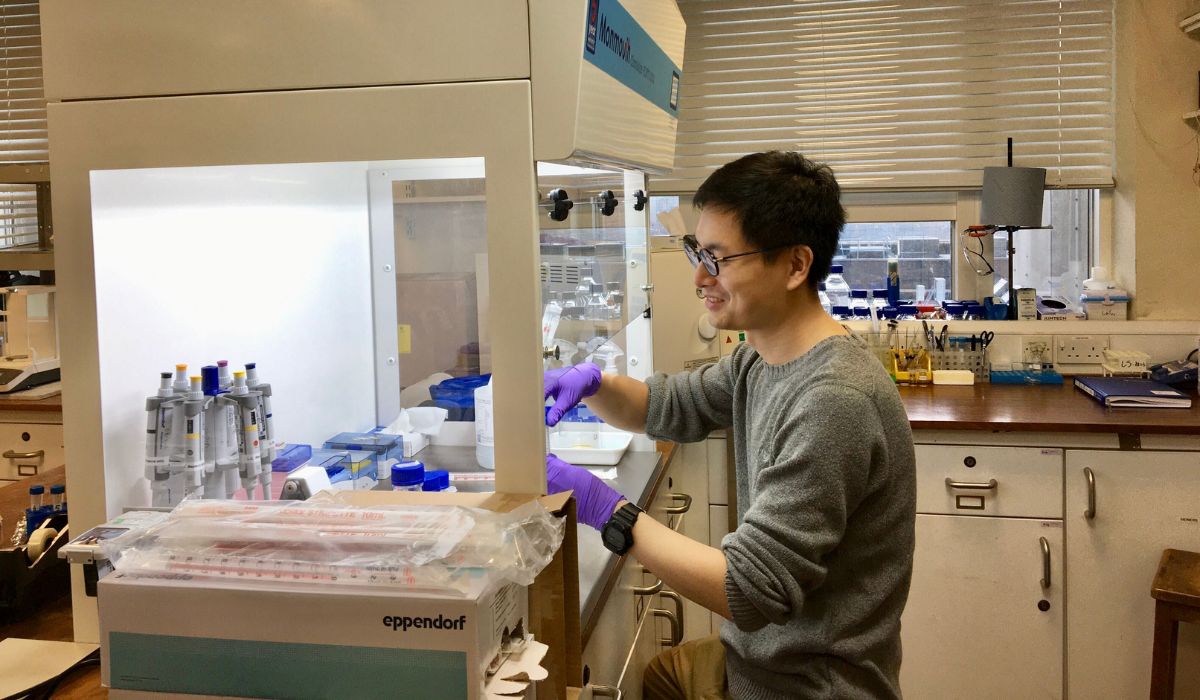Lucy Cavendish College welcomes Dr Lin Su as Leverhulme Early Career Research Fellow.
I am currently a Research Fellow in the Reisner lab at the Department of Chemistry, University of Cambridge. My research focuses on designing biohybrid systems (microorganisms and electrodes) to mimic photosynthesis for CO2 fixation and solar energy conversion.
During my postgraduate studies, I focused on applying biocompatible nanomaterials to engineer the extracellular electron transfer at interfaces between microorganisms and electrodes. I also got a chance to visit the Lawrence Berkeley National Laboratory and was introduced to synthetic biology. This eventually drove me to combine synthetic biology and nanoscience, designing the electron transfer pathways for bioelectronic sensing. As climate change caused by increased greenhouse gas emissions (e.g., CO2) becomes a significant global challenge, many researchers studied natural and artificial photosynthesis to find ways to overcome it. The Reisner Lab develops enzyme and cell-based hybrid (photo)electrochemical devices with light-absorbing semiconductors, so-called semi-artificial photosynthetic systems, to harvest solar energy and store it into chemical bonds using CO2 and H2O as feedstocks. These goals fit well with my research skills and interests, as the core of the semi-artificial photosynthetic reactions relies on the electron transfer pathways. Thus, I decided to join the lab and pursue my research in Cambridge in 2021.
For research, it is always fascinating to think about how microorganisms adapt to the environment and survive via evolution. The extracellular electron transfer I studied was initially found in some organisms living in anaerobic environments. O2 (a critical electron acceptor for many lives, including us, humans) is limited in their habitats, thus the microorganisms develop another way to "breath". The beauty of studying electron transfer across interfaces is that the electrons carry both energy and information. The ultimate goal would be 1) using electron flux to communicate with different living systems, not only "reading" the reactions that happen inside of a living system, but also controlling its behaviour; 2) using the electrons to generate renewable energy, or synthesising chemicals sustainably using CO2 and sunlight.
As a research-focused Fellow, my primary role and potential contributions to the College are helping the community to gain more engagement in STEM fields' research, promoting multidisciplinary collaborations, and providing a stimulating College environment of academic excellence for all the Fellows and students. Besides that, I am happy to contribute to the Lucy community with all the expectations from a fellow member, such as serving in the governing body, participating in college activities, and acting as an ambassador to raise the academic and general profile of the College.
Lucy Cavendish College is young, but with vitality and potential, I am excited to be involved in the developing process for great goals, compared to being just a part of the developed ones. Lucy Cavendish College is not large, but the people here are friendly and diverse. I enjoyed interacting with people from various backgrounds, in both research and culture.




